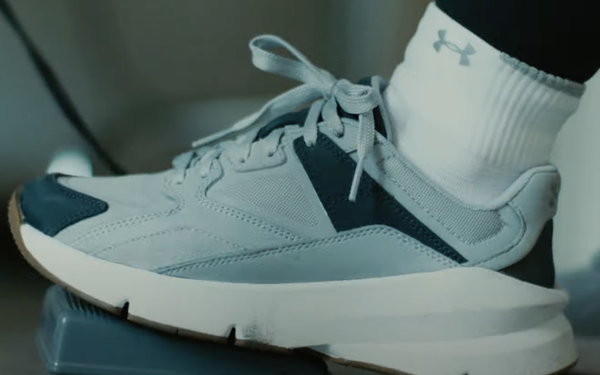by Sarah Mahoney @mahoney_sarah
Source: www.mediapost.com, May 2024
It’s not so surprising that Under Armour’s latest financial report card is a mess. Two months ago, the company abruptly replaced Stephanie Linnartz as chief executive officer, with founder Kevin Plank swooping back into the saddle.
That marks the second time Plank has boomeranged back to the CEO spot as the company struggles to find its groove with consumer
For the fourth quarter of its fiscal year, sales at the Baltimore-based company fell 5% to $1.3 billion and sank 10% in North America to $772 million. The lone bright spot was a 7% gain in international results.
Wholesale revenue dipped 7% to $850 million, and direct-to-consumer revenue was flat at $455 million, with ecommerce falling 8%. And while apparel sales slid 1% to $877 million, and accessories dropped 7% to $89 million, Under Armour’s shoe divisions show its deepest problems, with footwear sales decreasing 11% to $338 million.
Net income plunged to $6.7 million, compared to $170.6 million in the comparable period last year.
The real bad news, however, came in the form of Plank’s forecast.
“Due to a confluence of factors, including lower wholesale channel demand and inconsistent execution across our business, we are seizing this critical moment to make proactive decisions,” he said in the company’s announcement. “Over the next 18 months, there is a significant opportunity to reconstitute Under Armour’s brand strength through achieving more, by doing less and focusing on our core fundamentals: driving demand through better products and storytelling, running smarter plays like simplifying our operating model and elevating our consumer experience.”
Translation? For the coming fiscal year, it expects low-double-digit declines in company-wide sales, with a fall of 15% to 17% in North America as it works to reset its business.
The news is bleak enough that Brian Nagel, an analyst who follows the company for Oppenheimer, downgraded the stock. Although he is somewhat optimistic about Plank’s decision to step back in, following “several largely unsuccessful attempts by various senior leaders to streamline the Under Armour business model and reinvigorate product innovation,” he writes, “we recognize that positive change at the company will require time.”
Meaningful levels of new and better products won’t hit stores until the fall and winter 2025.
Other observers take a harsher view. “Under Armour’s brand position and its assortments are all over the place,” writes Neil Saunders, managing director of GlobalData, in his note. “This has not been aided by constantly changing strategies as senior management teams are reshuffled.” Plank’s return, he adds, “will not provide an automatic resolution.”
Yahoo Finance goes even further, with executive editor Brian Sozzi adding Plank to his “worst CEOs of all time” list. “What’s going on at Under Armour is a full-on disaster,” he writes, “and Plank has to bear the brunt of it all.”
And while David Swartz, an analyst who follows the company for Morningstar, is taking a more measured view of Plank’s return, he’s still got plenty of reservations. “Plank acknowledged years of missteps under prior executives and highlighted a renewed focus on core men’s performance apparel, faster product development, full-price selling, and North America operations,” Swartz writes. “While it makes sense that Plank wants to double down on Under Armour’s strengths, and the sportswear market is large enough to support many producers, success is far from certain.”

